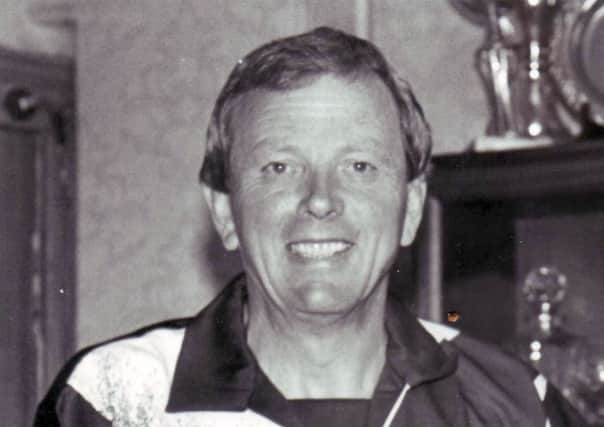Obituary: Martin Harvey, Northern Ireland international who helped Raith Rovers to historic cup win


Martin Harvey, who has died suddenly, aged 78, was one of those quiet “one-club” players who let his considerable talent do the talking for him. He was a great player but remains relatively uncelebrated.
Belfast-born, he came out of the same Boyland BC set-up which would, a couple of years later, produce George Best. He tried his luck at Burnley, but was not offered a contract. Undismayed, he went on to Sunderland, where he would wear the red and white stripes throughout a 13-year career, in which he played 314 first-team games for the Black Cats.
Advertisement
Hide AdAdvertisement
Hide AdHarvey made his debut against Plymouth Argyle, at Home Park, in October, 1959, while still only 17. His career bridged the fallow years between the breaking-up of the ‘Bank of England’ team of Len Shackleton and Trevor Ford in the 1950s and the FA Cup-winning team of 1973, the season after he retired.
Harvey was something of a pioneer, however. When he broke through, English football was changing. Out went the time-honoured 2-3-5 formation, in came 4-4-2. This meant one wing half had to curb his attacking tendencies to slot-in as a second centre-half; it was a role which suited Harvey, a brilliant tackler, to a tee.
Naturally left-footed, he preferred to play on the right of centre-half Charlie Hurley, but, he was able to switch onto his left foot and change the point of attack, particularly for that short period when a certain James Curran Baxter was operating on the left side of the Sunderland midfield.
He won Northern Ireland B caps, prior to making his international debut, against Italy, in October, 1961, standing-in for the great Danny Blanchflower. Then, after Blanchflower retired, he made the number four shirt his own in winning 34 full caps, plus three at Under-23 level.
On retiring in 1972, his later years blighted by injuries, he switched to the Sunderland coaching staff, being one of the backroom team when Ian Porterfield’s goal improbably won the FA Cup for Sunderland in 1973; and his long service was belatedly recognised with a testimonial match against Newcastle United in 1975.
He finally left Sunderland in 1978, to accept former Scotland captain Bobby Moncur’s offer of the job as his assistant at Carlisle United. Then, when Moncur left, caretaker Harvey saved the Cumbrians from relegation and was made permanent manager – only to be sacked the following season after a disastrous start to the campaign.
He was reunited with Moncur at Plymouth Argyle, where again, when the Scot left, he did a fine job as caretaker manager. The Argyle directors did not offer him the top job, but he stayed on as assistant, and twice had spells as caretaker manager there too.
He went back into the Northern Ireland international set-up for the 1982 World Cup in Spain, where he and former Celtic captain Bertie Peacock were assistants to Billy Bingham. He also had a short spell as Bingham’s number two in Saudia Arabia and at the 1986 World Cup in Mexico.
Advertisement
Hide AdAdvertisement
Hide AdIn 1990, Jimmy Nicholl, one of the stars of the 1982 campaign, was setting out on his own managerial career, and as Jimmy said: “When I was offered the Raith Rovers job, I realised I needed an experienced number two and I was so lucky that I was able to persuade Martin to come north to fill the role. I learned endless amounts about management from him.”
The partnership was a huge success. They twice won the old First Division, and, in 1994, Raith won what is, to this day, their only major Scottish trophy, when they beat Celtic to win the League Cup. This got the team into Europe and a memorable meeting with Bayern Munich.
Nicholl’s success at Raith earned him a job offer in England, with Millwall, and again he took Harvey with him. However, the move was not a success and, when Nicholl was offered a lifeline back at Raith, the finances would not allow him to bring Harvey north with him.
By this time Harvey had had enough of management. He retired to live on the outskirts of Plymouth, where he contented himself on the golf course – he was a fanatical golfer – and in family life with Ruth, his wife of more than 50 years, their three childfren and their grandchildren, all of whom survive him.
Martin Harvey was a terrific, if under-appreciated footballer; he was also a very good assistant manager, far happier in the number two role than as the main man. He was a credit to the game, and to Northern Ireland.
MATTHEW VALLANCE